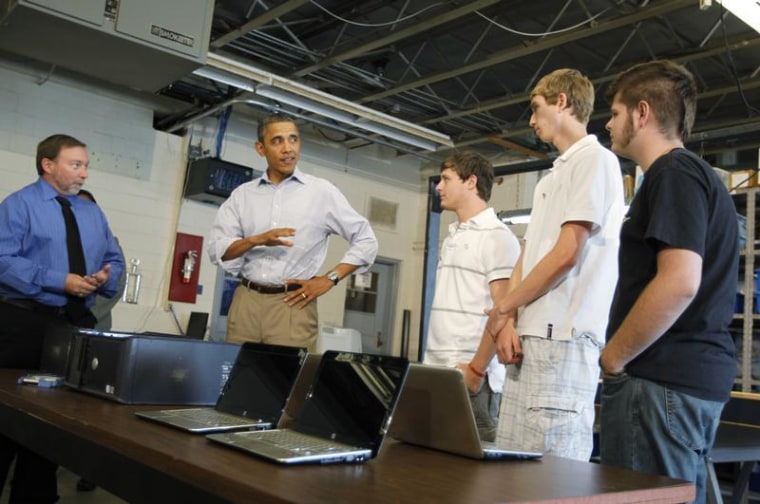President Barack Obama on Thursday will encourage American schools to engage their digital-era students by providing more laptops with high-speed Internet connections and fewer textbooks and lectures.
Obama will tour a middle school in Mooresville, North Carolina, that has improved its test scores and graduation rates through digital learning, an approach favored in countries like South Korea, which is phasing out printed textbooks by 2016.
"This is about transforming teaching and learning in this country," an administration official told reporters ahead of Obama's trip.
The average American school has a slower Internet connection than the typical American home, the official said, and many schools cannot stream an Internet video in more than one classroom at the same time.
The administration wants schools to have access to high-speed broadband and wireless within five years so students can use devices at their desks, the official said.
This approach would allow students to explore the ocean floor from their desks, collaborate in groups, learn at their own pace, and "help them overcome what is actually a great challenge in the American classroom today, which is boredom," the official said.
The program also would create a huge market for devices and software, another official told reporters.
It does not need approval from Congress. Instead, the Federal Communications Commission would make changes to its E-Rate program, a $2.3 billion-per-year-subsidy that allows schools and libraries to get discounted rates for Internet service.
Administration officials said the effort will require a one-time investment of several billion dollars, which could be generated within a few years by a fee on home phone bills of less than $5 per year per home.
(Reporting by Roberta Rampton and Alina Selyukh; Editing by Xavier Briand)
